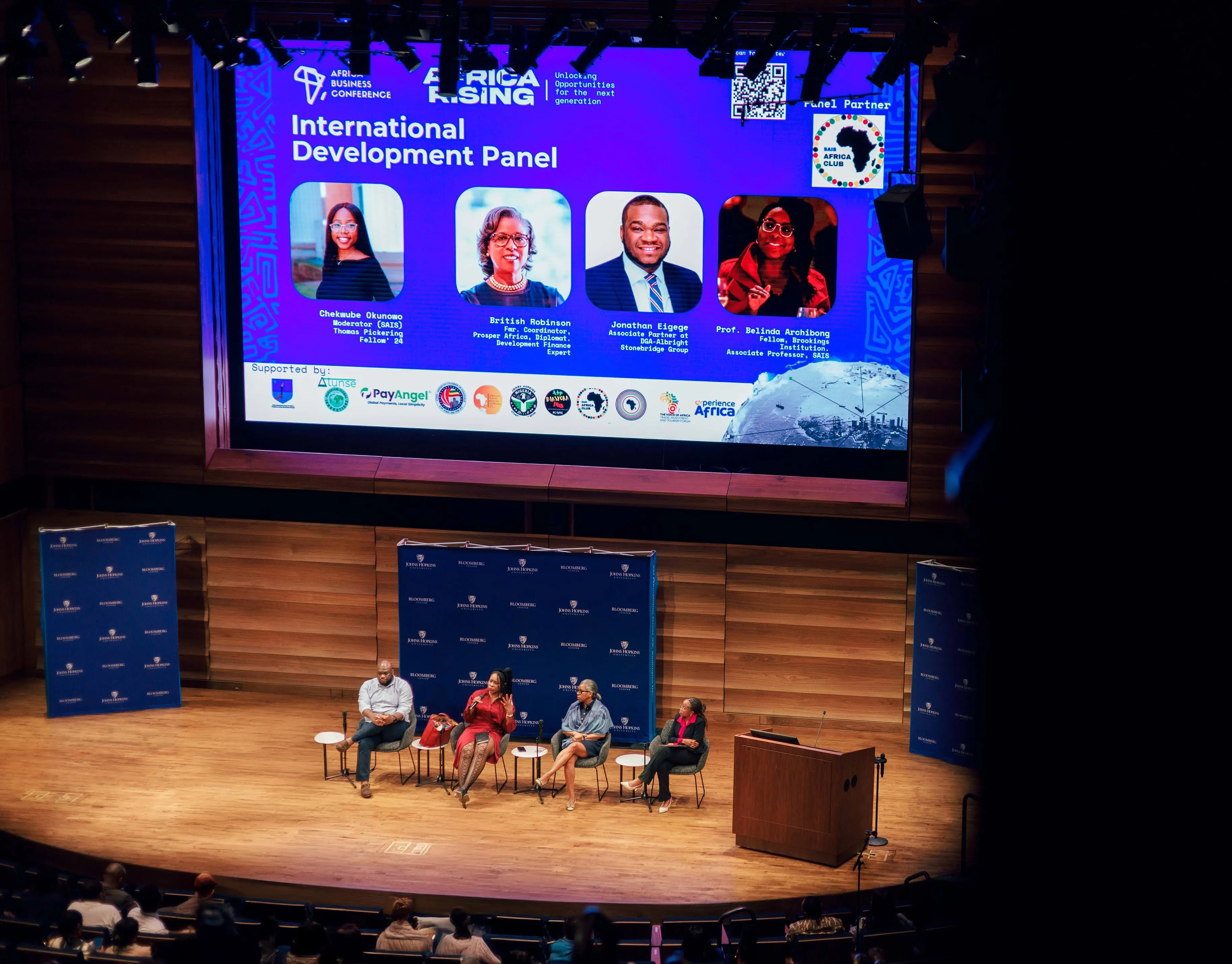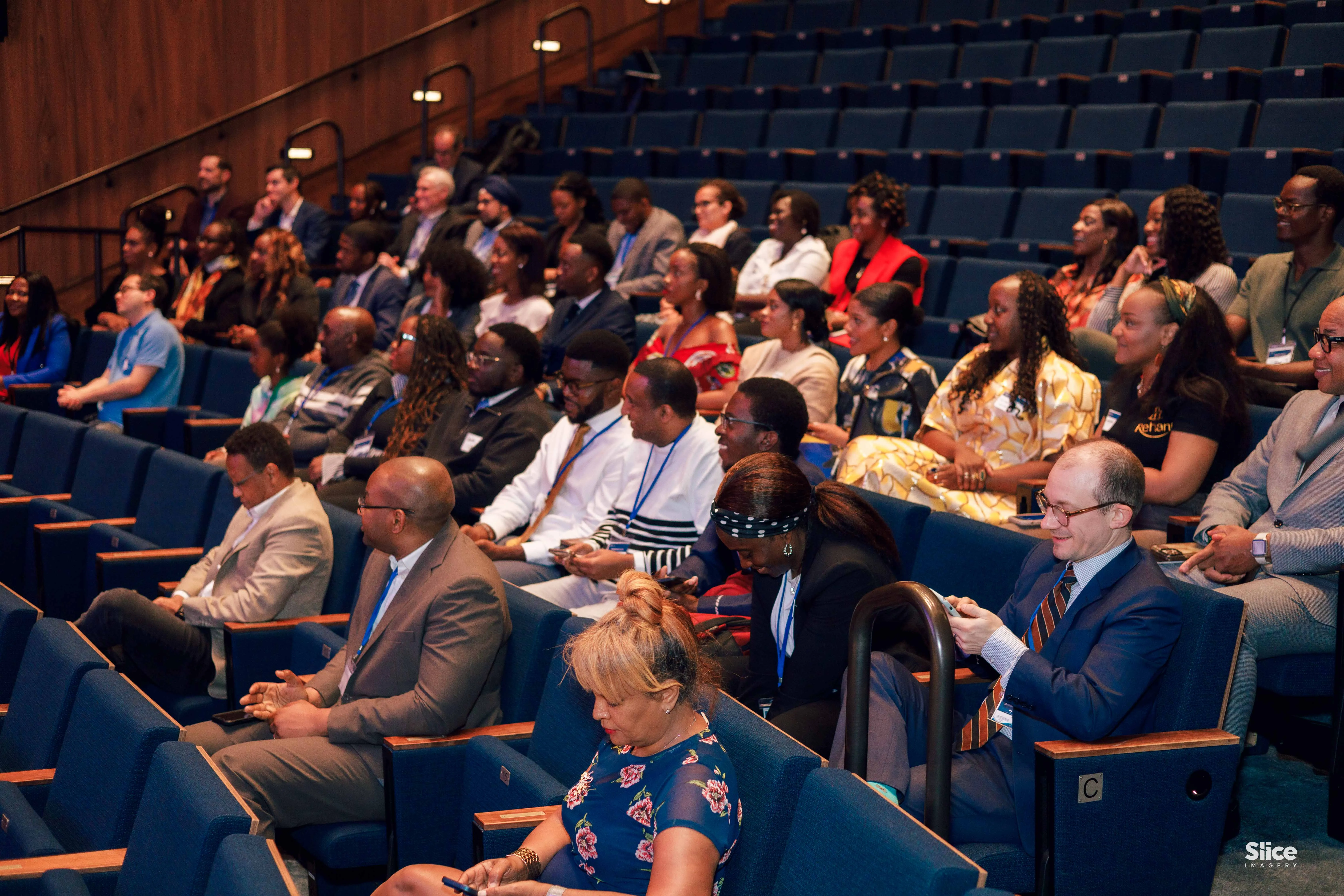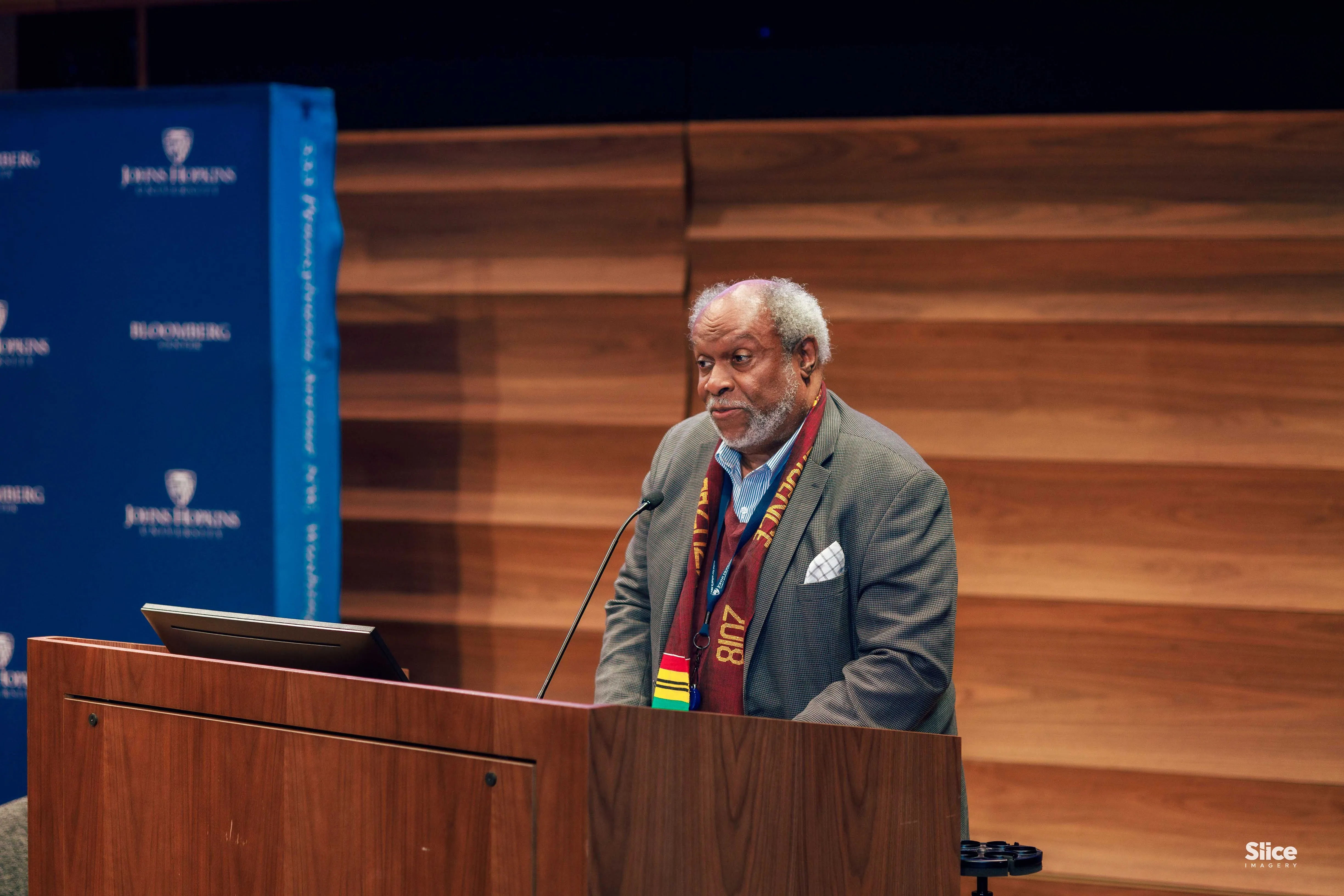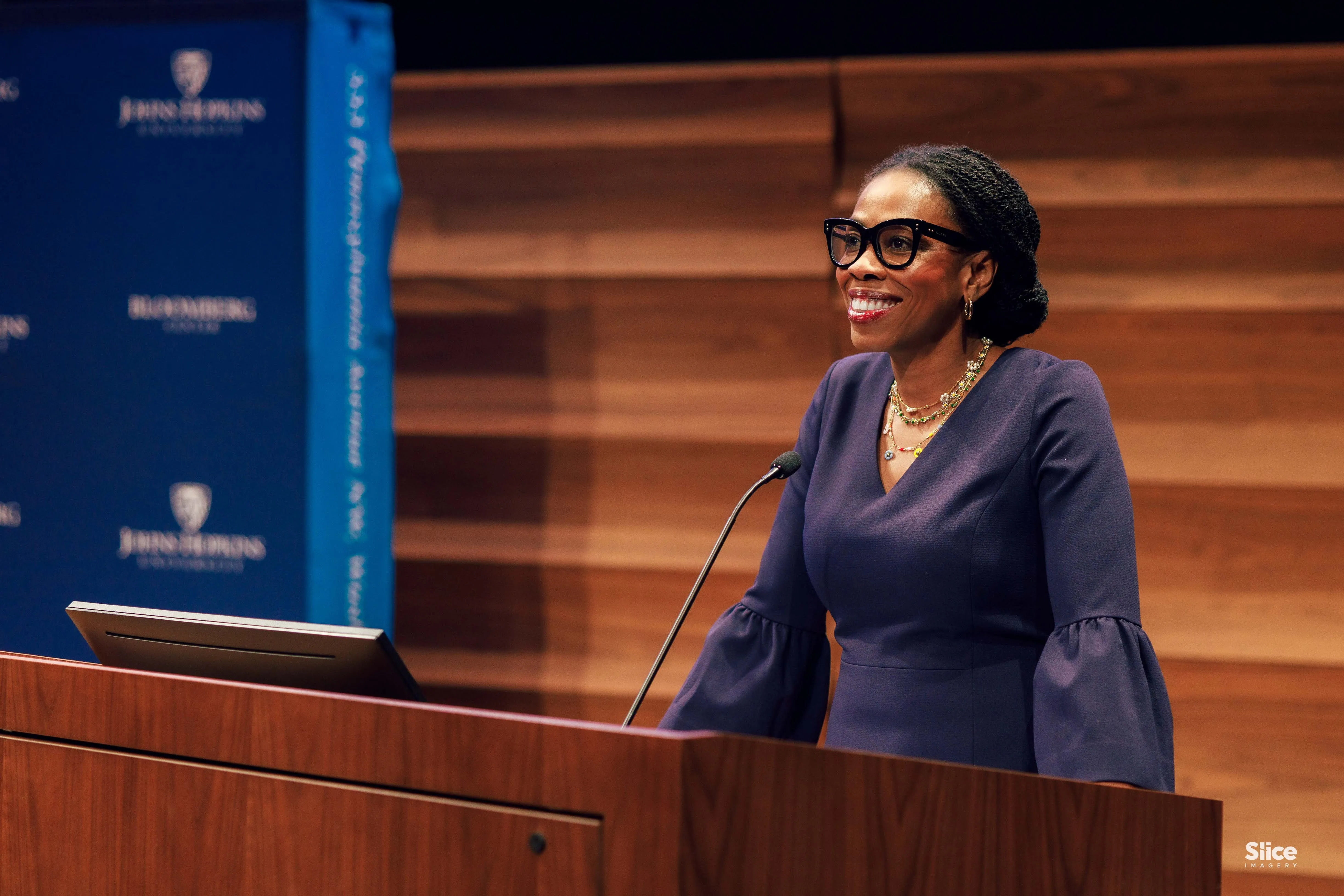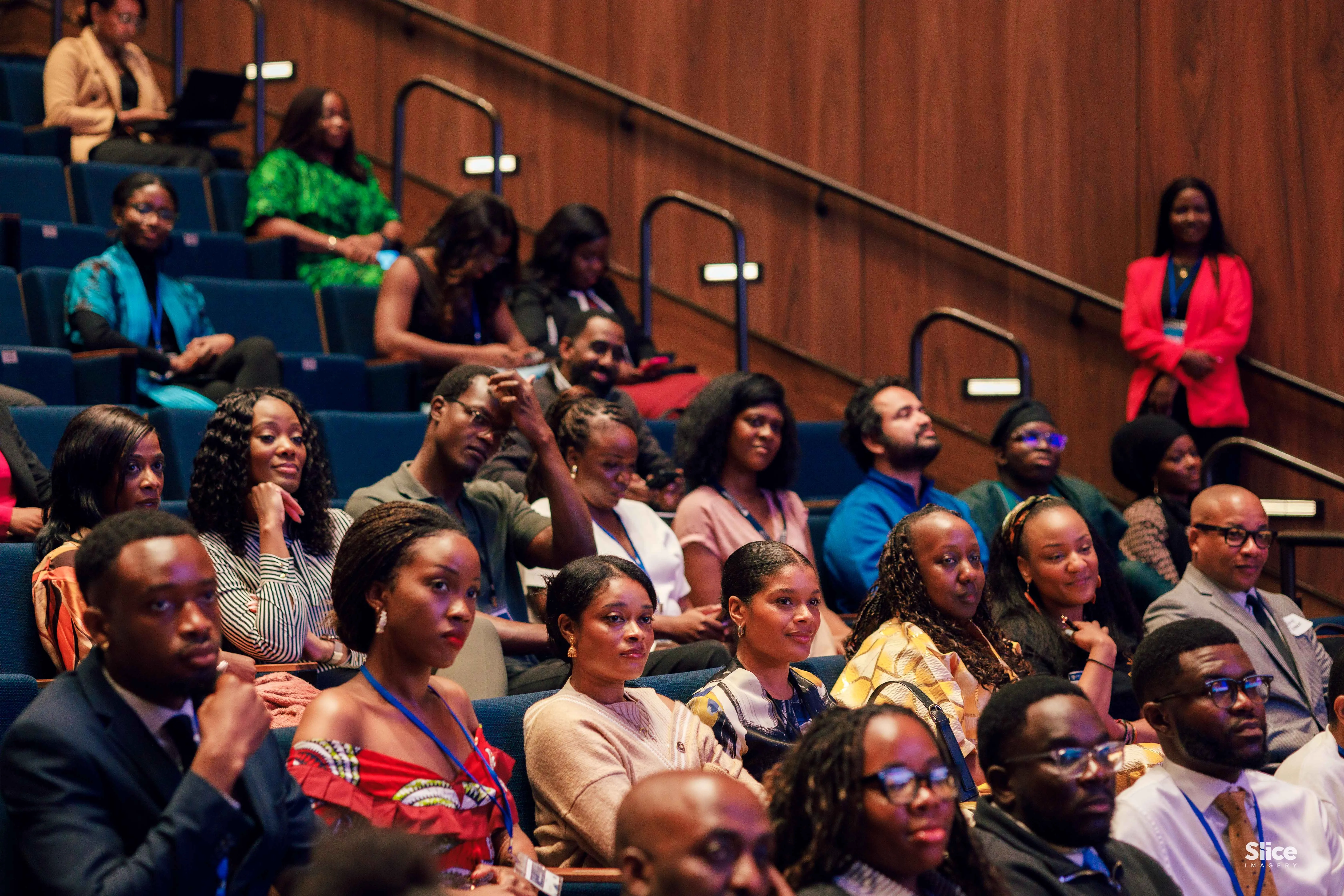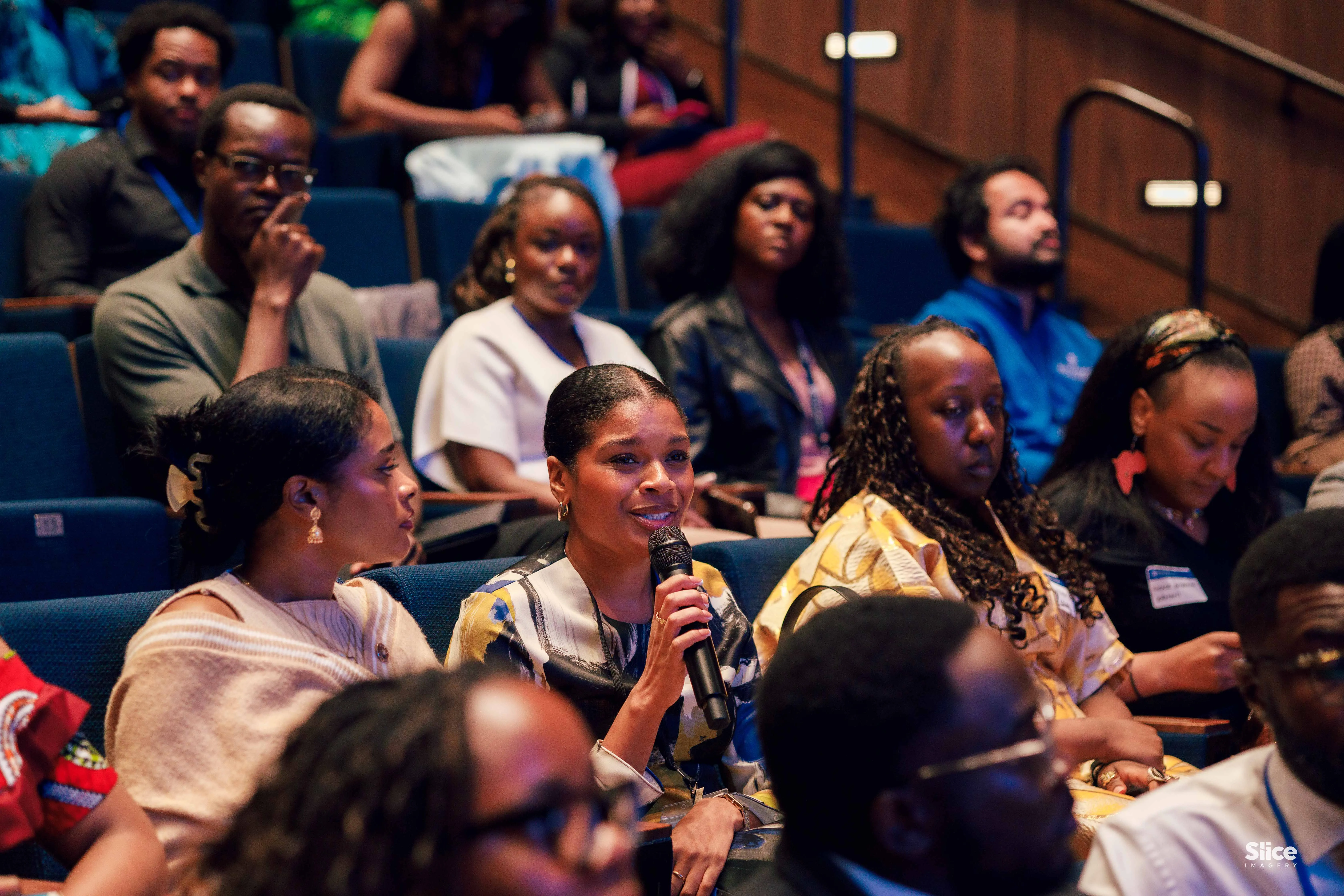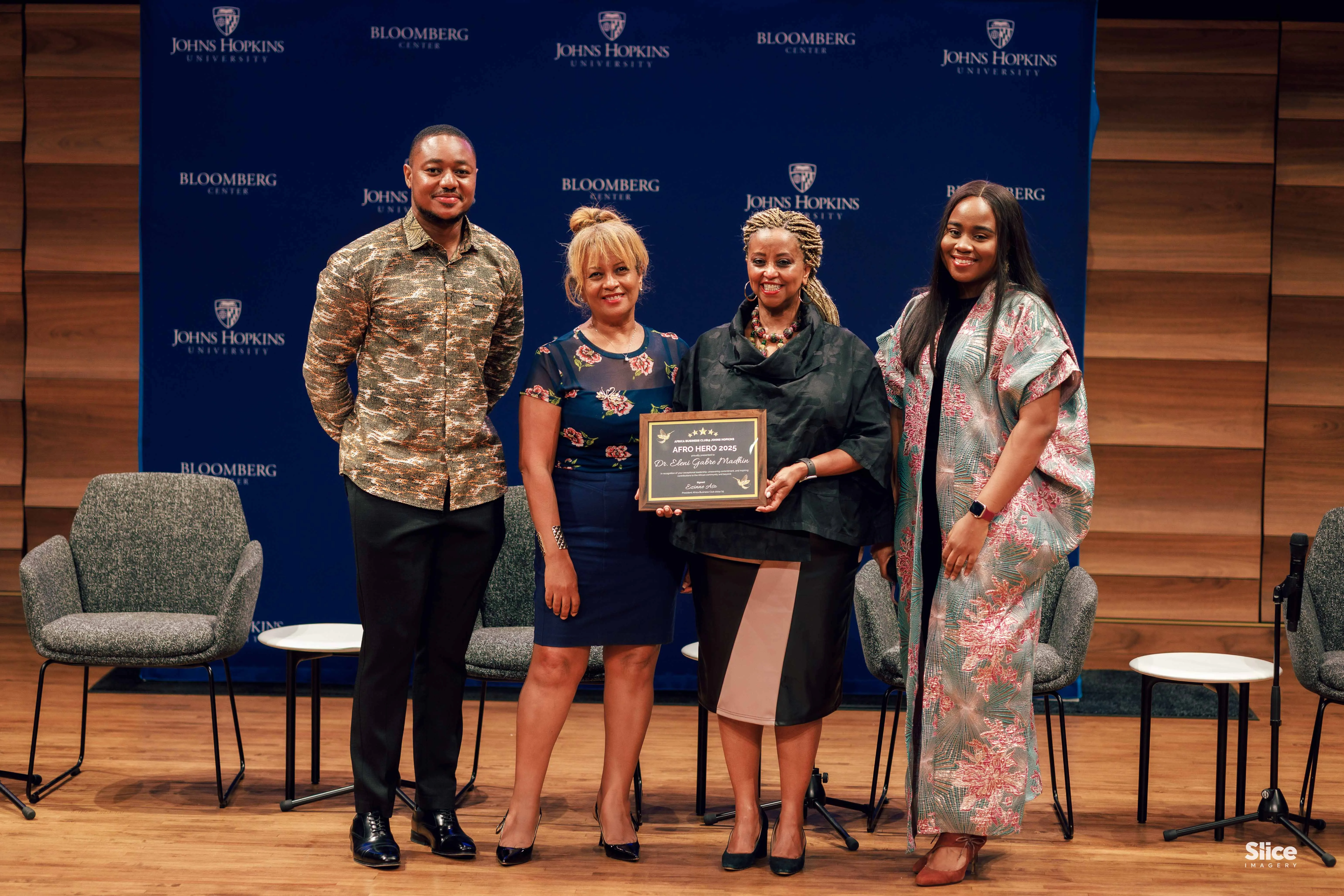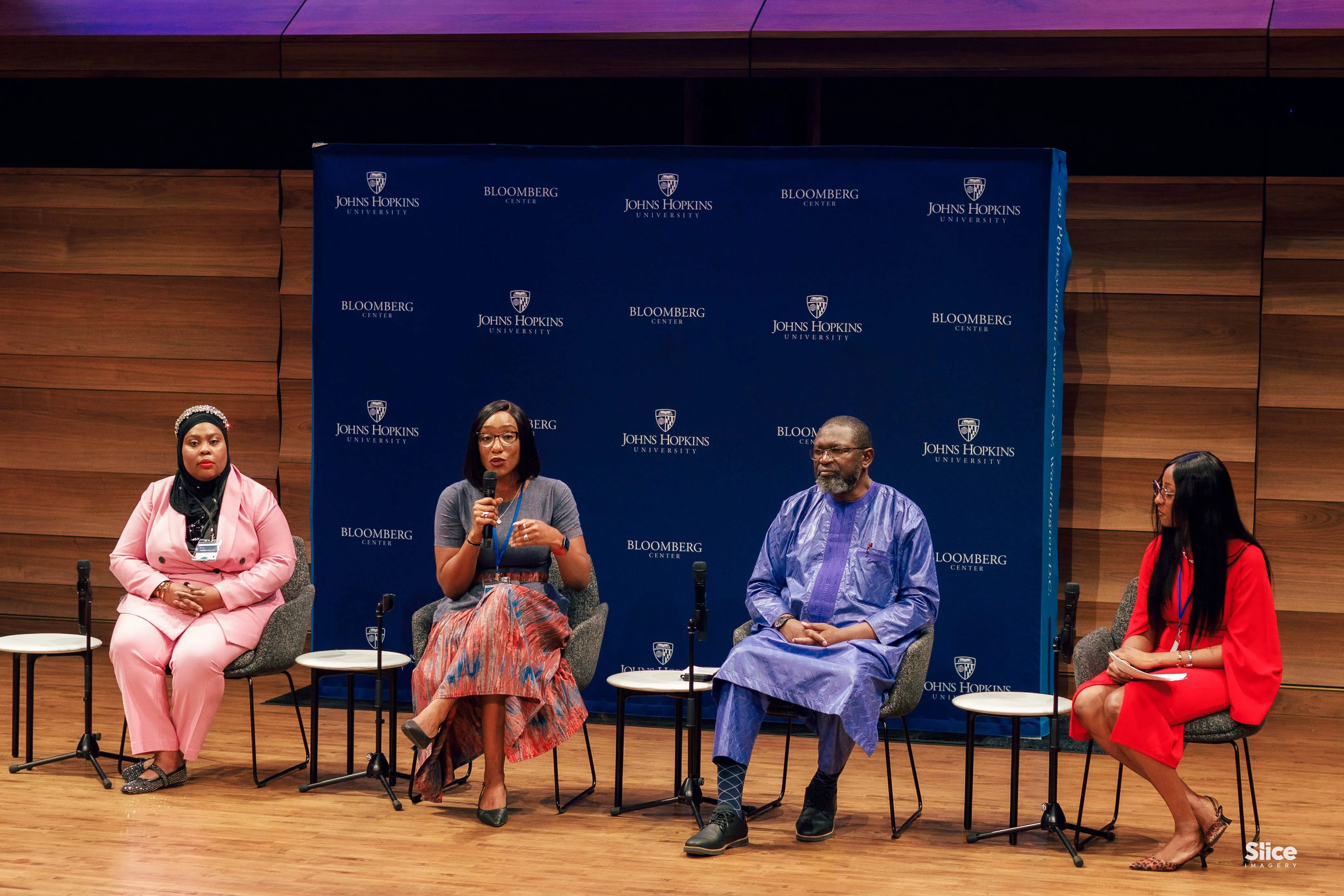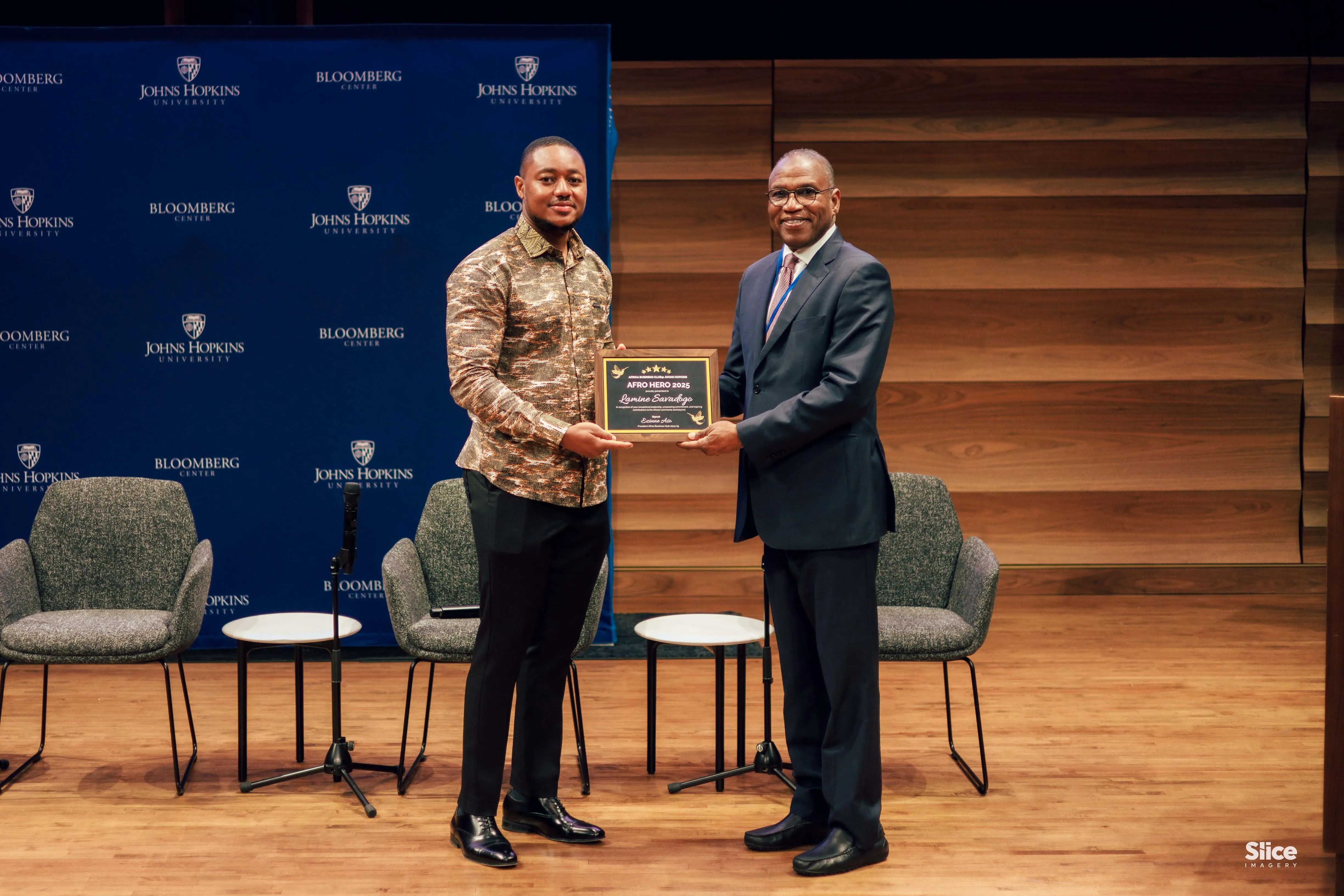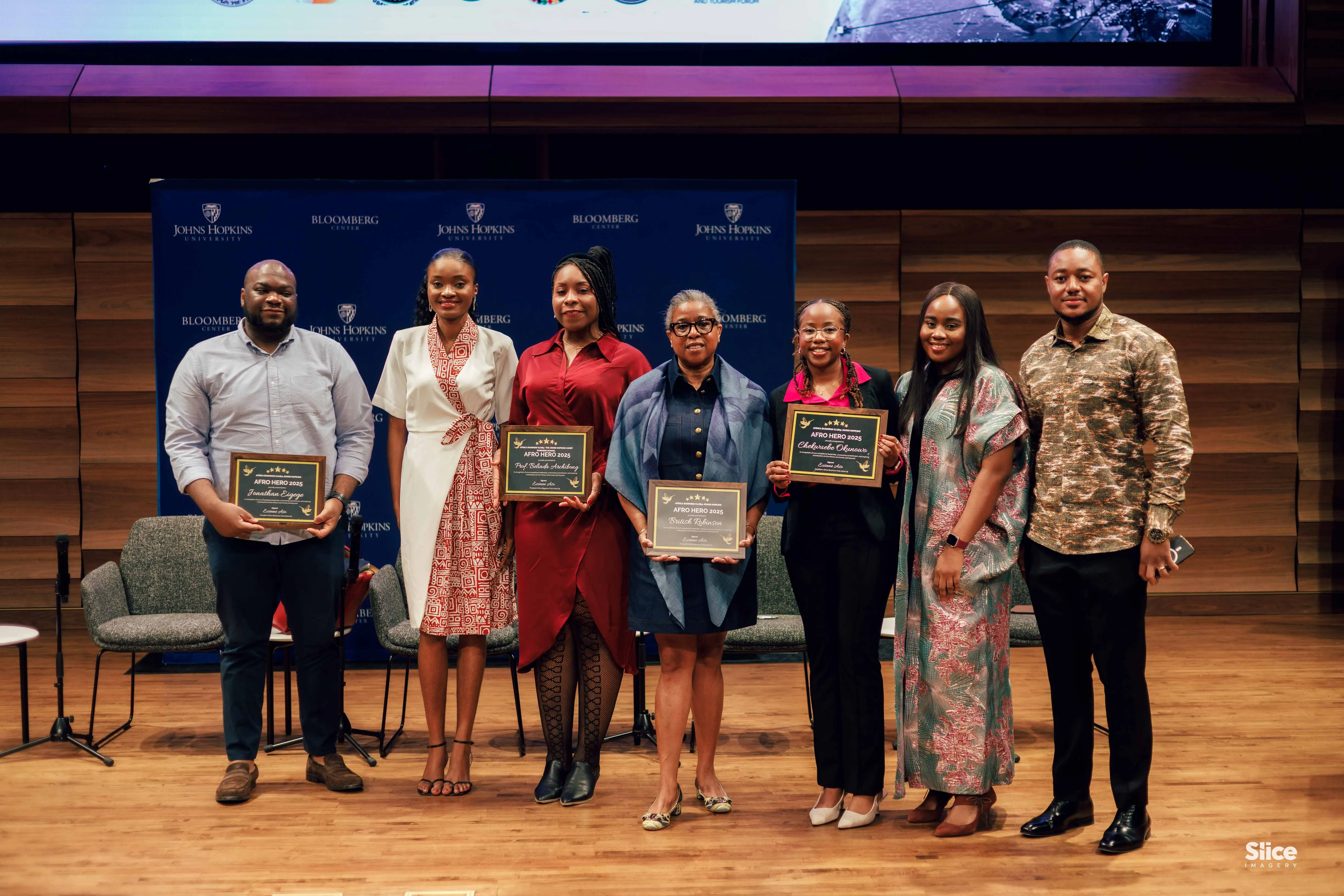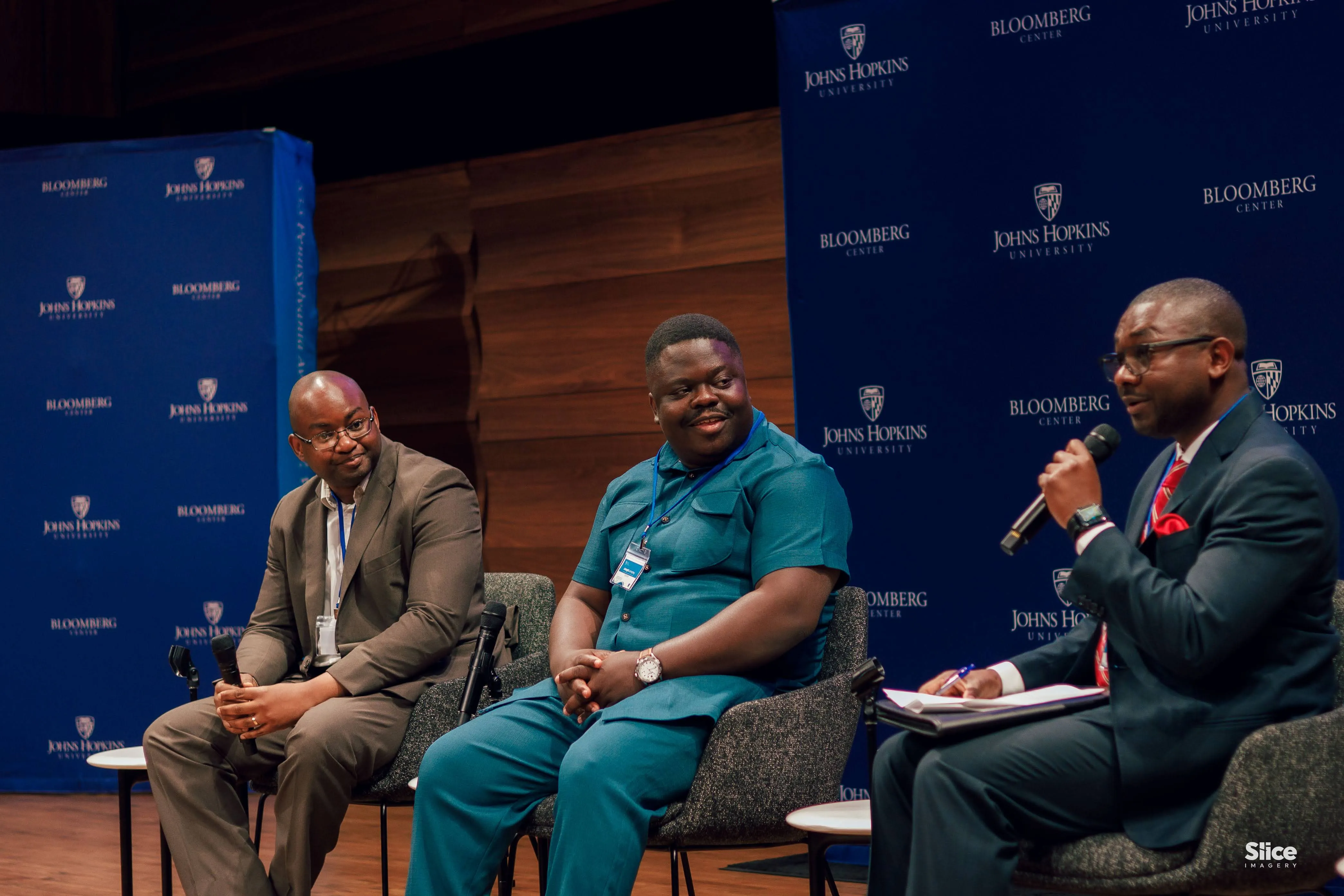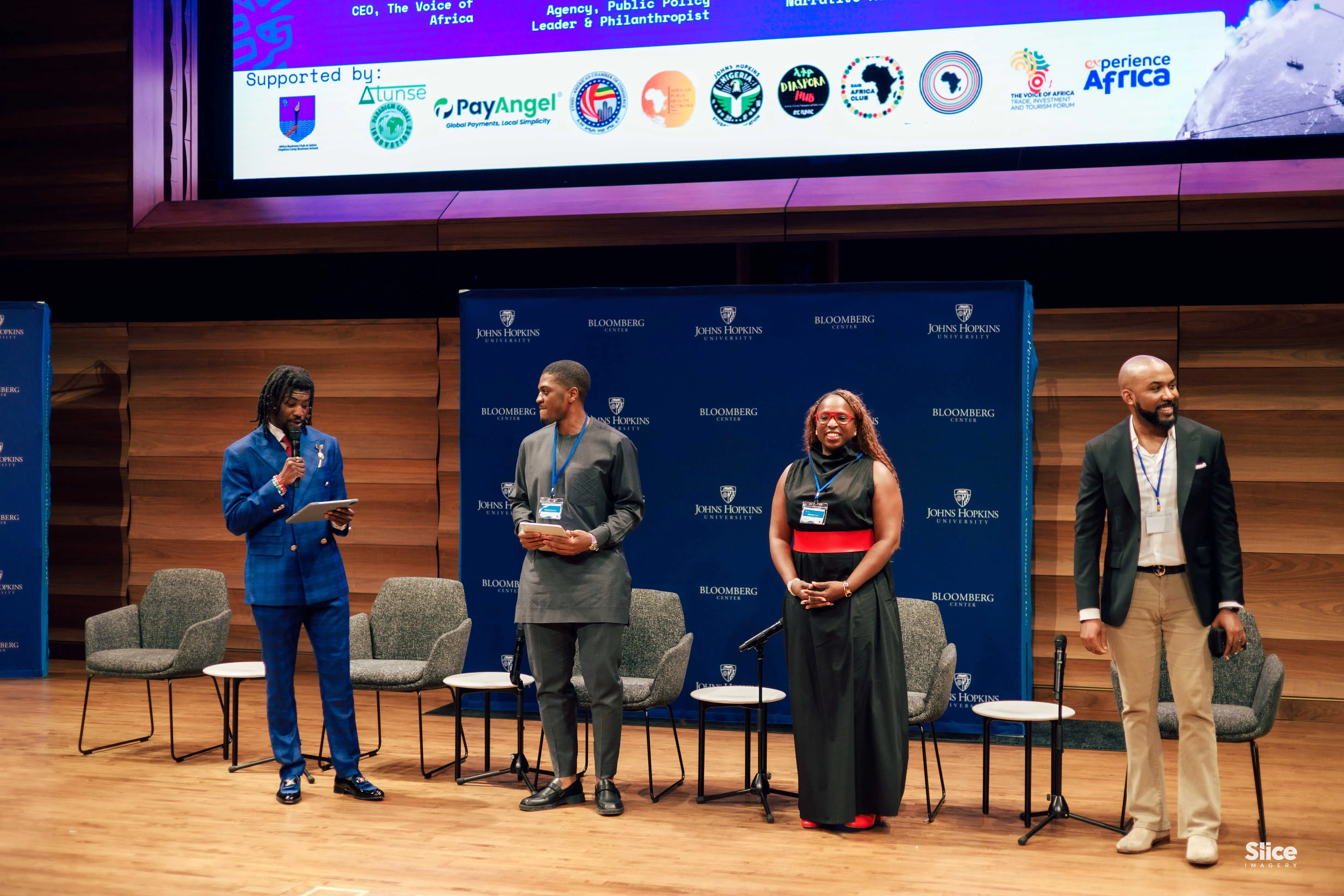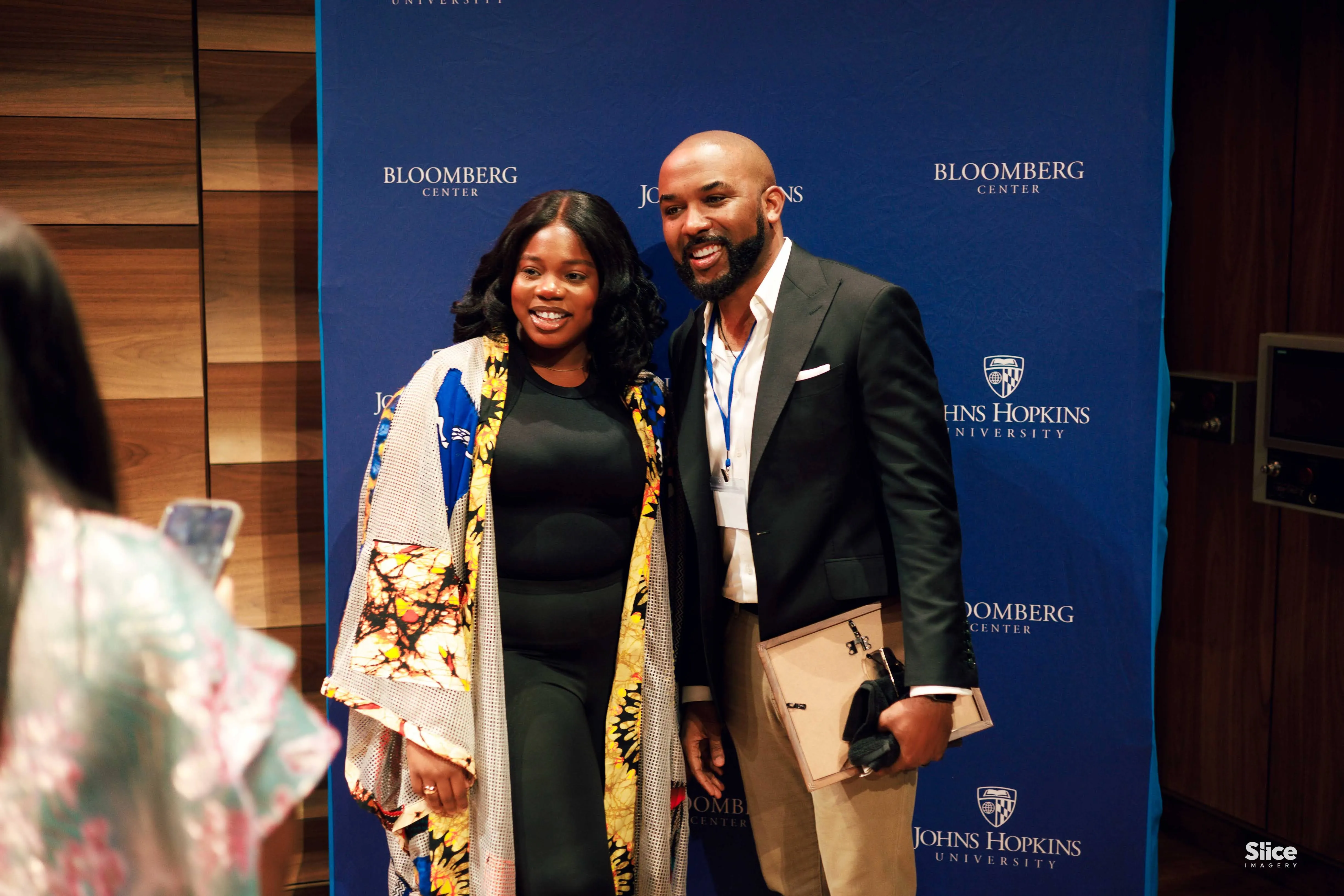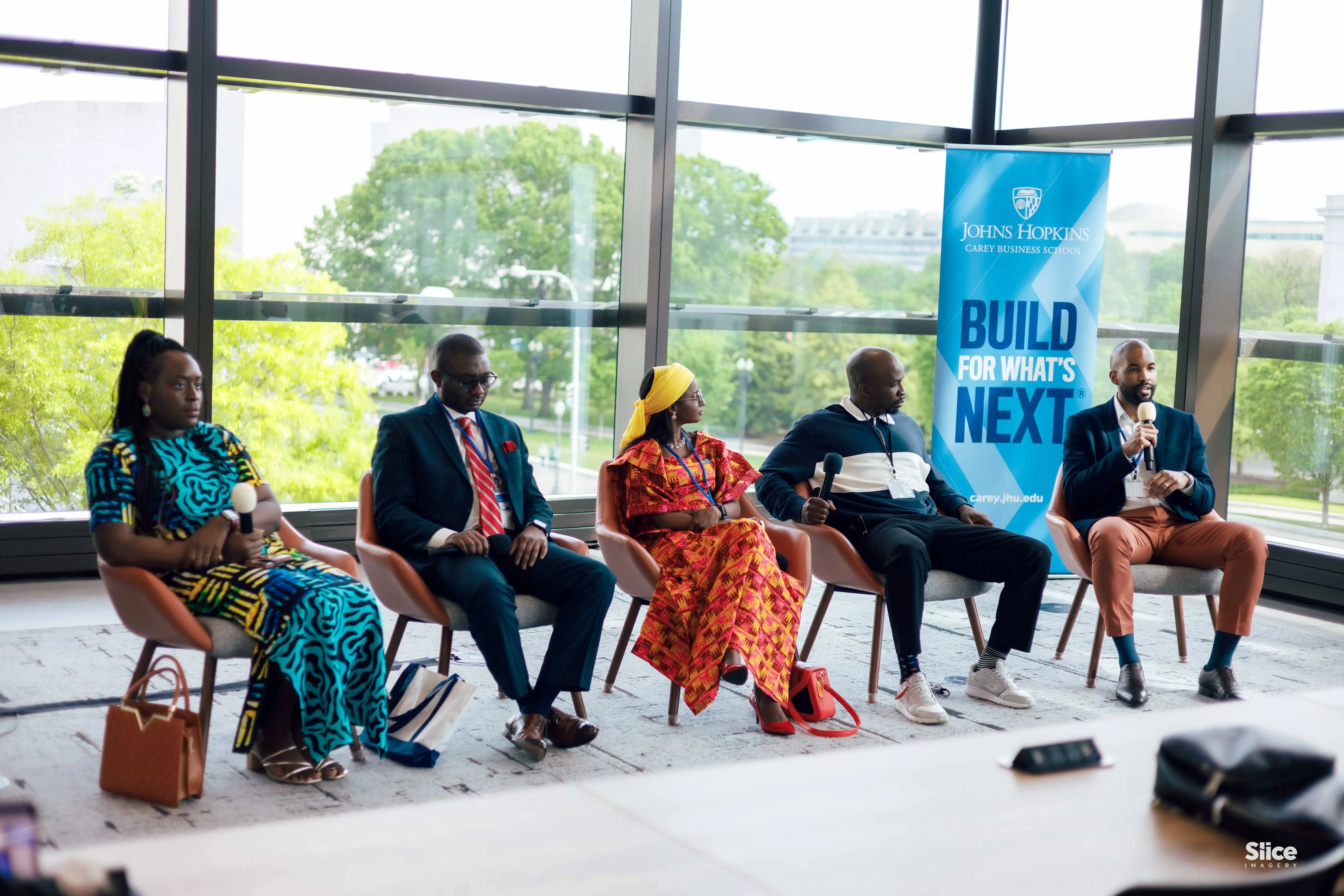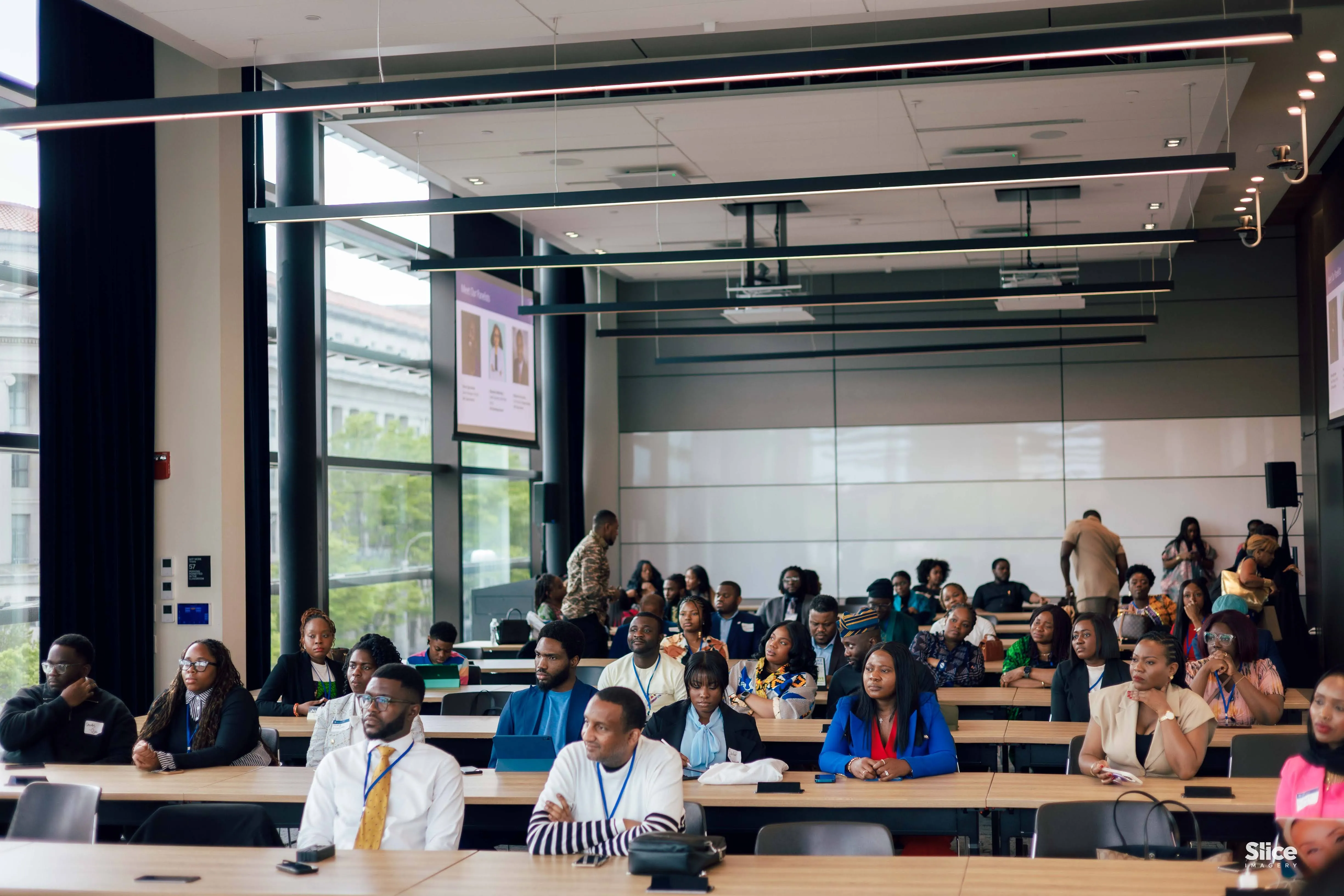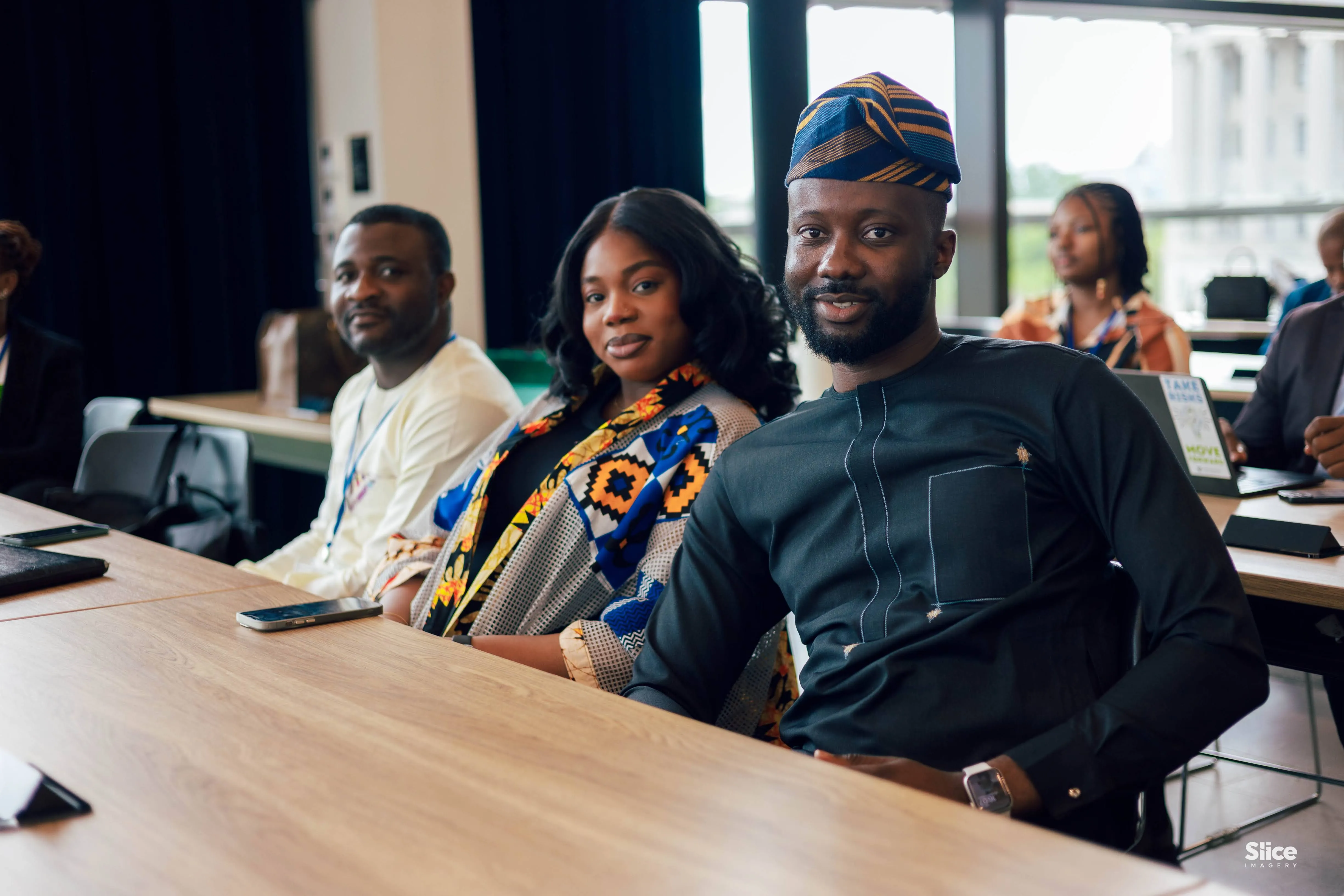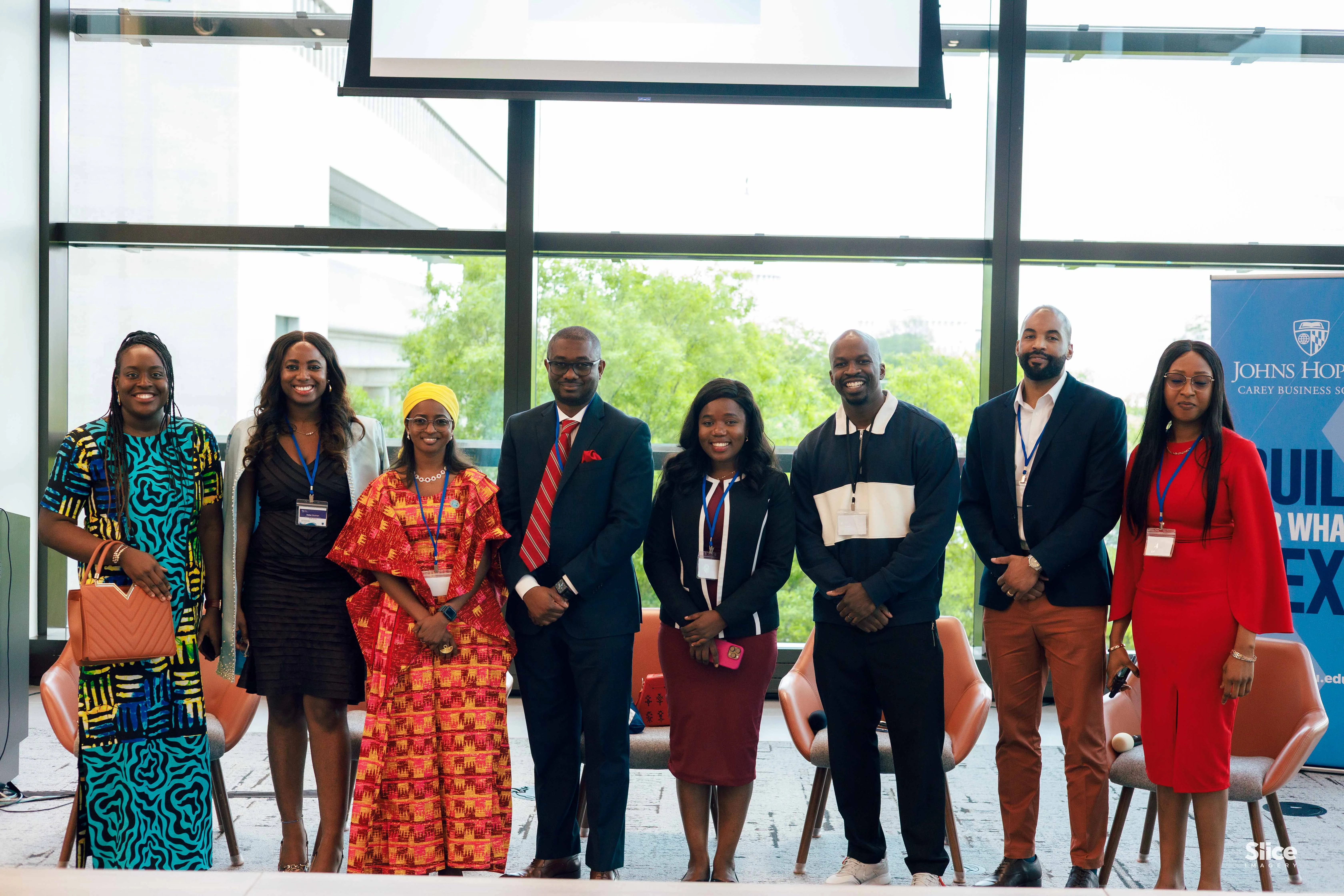In April, Johns Hopkins Carey Business School’s Africa Business Club hosted its sixth annual Africa Business Conference. Held at the Johns Hopkins University Bloomberg Center in Washington, D.C., the conference was a powerful celebration of innovation and leadership, bringing together more than 200 participants and over 35 influential voices from across industries. Attendees heard from entrepreneurs, policy leaders, industry experts, and students passionate about shaping the future of Africa.
This year’s theme Africa Rising – Unlocking Opportunities for the Next Generation reflected a growing wave of innovation, youthful energy, and the urgent need to build sustainable futures across the continent. At its core was a clear call to action: the responsibility and power to shape the continent’s future lies within Africans themselves.
“No one can write our story or shape our future. That responsibility and that power is ours,” said Ezinne Aso, president of the Africa Business Club.
The conference held two keynote addresses, four main panels, and additional events throughout the day offering dialogue and connections for students, faculty, staff, alumni, and industry leaders. The four panels focused on African development and delivery.
The day began with keynote addresses centered on a powerful theme: local ownership as the foundation for Africa’s transformation. Eleni Gabre-Madhin, an executive-in-residence at Georgetown University told the audience that “development is not delivered, it’s grown,” emphasizing that true progress comes from empowering entrepreneurs, markets, and communities.
Lamine Savadogo, president of Marison Energy Systems, extended this idea to the energy sector saying, “Africa holds the key to the world’s clean energy future.” But unlocking this potential will require bold local leadership, strategic investment, and strong collaboration.
Panel 1: Building Resilient Health Systems
The Building Resilient Health Systems panel explored what it will take to create a resilient and self-sufficient health care system in Africa. The conversation featured insights from Ahmed Ogwell Ouma, senior advisor for global health at United Nations Foundation; Dr. Uche Ralph-Opara, CHO at Project HOPE; and Hafeezah Muhammad, CEO of Backpack Healthcare.
“We must localize our health solutions. Let Africa’s health narrative be written by Africans who live its realities,” noted Ralph-Opara.
The panelists emphasized the importance of localizing health solutions, designing systems that serve entire communities and not just those who can afford care, and investing in domestic resources. The discussion also highlighted emerging opportunities in mental health, the potential of AI-driven platforms to close rural-urban care gaps, and the growing role of youth in advancing digital health innovation.
Panel 2: Policy, Power, and Partnerships
This dynamic panel session was held in collaboration with the Johns Hopkins School of Advanced International Studies’ Africa Club. The session examined the future of Africa’s economic development through the lens of trade, investment, and sustainable growth. Attendees heard insights from British Robinson, former coordinator of Prosper Africa; Belinda Archibong, associate professor at Johns Hopkins School of Advanced International Studies; and Jonathan Eigege, associate partner at DGA-Albright Stonebridge Group.
The discussion emphasized the need to redefine Africa’s development through greater policy coherence, regional integration, and value chain transformation.
“We need to de-risk perception before we de-risk capital. Investors don’t just want returns, they want predictability. And that’s where we must start,” said Eigege.
Panelists stressed the importance of reshaping investor perceptions, harmonizing policy frameworks, and strengthening intra-African institutions to unlock capital and long-term growth. They also challenged extractive trade models, urging a shift from raw exports to strategic value chains. However, panelists said they see opportunity in disruption. Ultimately, the session called for bold reforms, innovative domestic financing, and African-led solutions that prioritize people over policy metrics.
Panel 3: Unlocking Africa’s Financial Future
Joseph Elvis A. Lamptey, director of growth at PayAngel and co-founder of Kaya B2B Marketplace, and Hermano Juvane, senior international banker at Absa Bank Ltd, discussed the transformative role of financial literacy and collaboratively advocating for new and available technologies to unlock opportunities for the next generation of Africans. From remittance innovations to digital banking inclusion, panelists emphasized the role of diaspora capital, regulatory reform, and youth-focused fintech solutions.
“The whole idea of fintech getting into remittances and payment systems is to eliminate the third party, increase the speed of transaction, improve reliability, and reduce the cost of remittances as low as less than three percent,” said Lamptey.
Panel 4: Redefining Africa’s Global Narrative
This dynamic panel explored how storytelling, media, and culture can influence global perceptions of Africa and drive meaningful investment. Panelist Olubankole “Banky W” Wellington said, “The most powerful export Africa has is its story. And we must be the ones to tell it.”
Wellington is the co-founder of EME Agency and was joined by Lee-Roy Chetty, head of digital communications and engagement at International Finance Corporation; Akunna Cook, former deputy assistant secretary of state for African Affairs and founder of Next Narrative Africa; and Sharaf Mahama, CEO of Legacy Rise Sports and founder of Sharaf Mahama Foundation.
The conversation also highlighted how Africa’s soft power is entertainment and sports, as it shapes the way the world sees Africa and can open doors to opportunity. Other key themes included using culture to change culture and harnessing the talents of the diaspora through digital platforms and strategic partnerships to reposition Africa’s brand.
“When you have data, all of a sudden, your project becomes more attractive for investors because it is evidence-based,” said Chetty.
Additional panels
Beyond the mainstage panels, the conference also held its signature events where attendees, students, faculty, and staff could network and build connections. The three side panels were:
- Founders Connect: This interactive session brought together emerging and seasoned entrepreneurs to pitch their ideas to venture capitalists, gaining valuable feedback, insights into the startup journey, investor expectations, and scaling within the African context.
- Diaspora Connect Room: In partnership with The Voice of Africa, this event was designed to foster high-level networking between diaspora investors, embassy officials, and African innovators. This event sparked meaningful dialogue and real-time commitments and opened pathways for continued engagement and investment within the diaspora community.
Samuel Onwubiko, vice president of media and marketing for the Africa Business Club, said this event is more than just networking. “It’s an opportunity to build real connections and promote the impact of the African continent,” Onwubiko said. - Career Development Session: This session created space for mentorship and career exploration with industry leaders across finance, health, and global development. Attendees engaged in fireside chats, small group mentoring sessions, and heard from industry experts on how to navigate career pathways.
Panelists for this session included Fatoumata Adelle Barry, a young professional at World Bank Group; Mahamed Konfrou, vice president at Morgan Stanley; Shawn Bailey, vice president at Finance Novavax Inc.; and Sheun Ogunsunlade, senior manager at Protiviti.
At the end of the conference, Mark Ayumu, the chair of the Africa Business Conference and vice president of events for the Africa Business Club, shared a powerful message.
“We have set a new standard for what Africa-focused collaboration can look like. This is no longer just a conference–we have unlocked opportunities for the next generation.”
About Carey’s Africa Business Club
The Africa Business Club is a student-led organization established to increase awareness of the business ecosystem on the African continent. The club fosters dialogue, promotes innovation, and builds community among students, professionals, and stakeholders with a shared commitment to Africa’s progress.
Photo credit: Carey Creator Kwesi Peprah, SliceImagery
